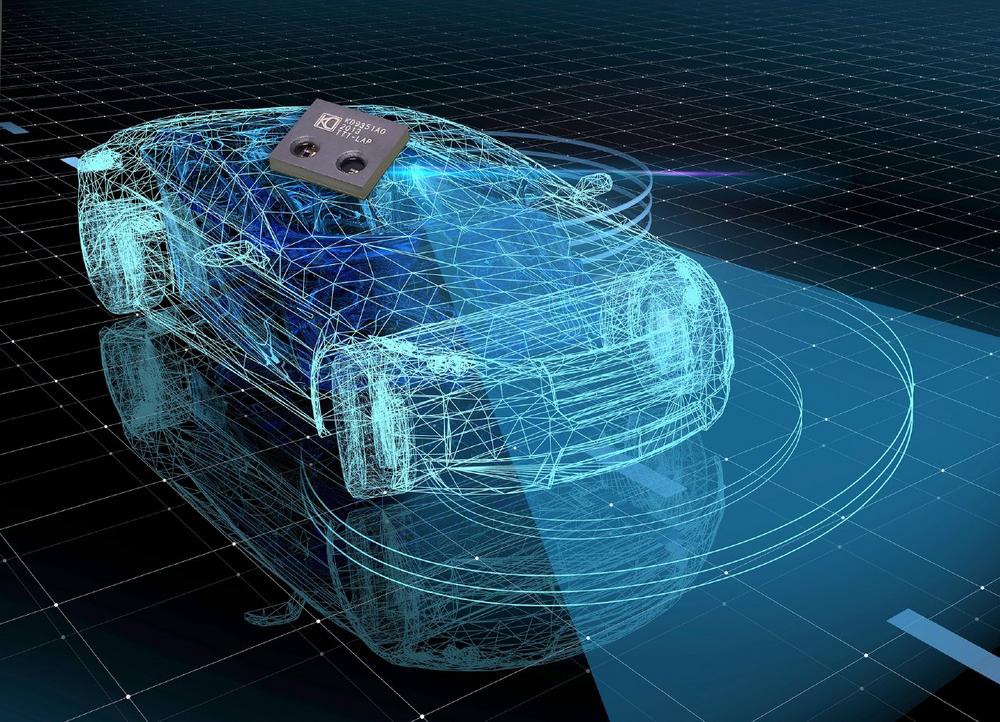Getting Future-ready: EMC-safe and Robust Automotive Ethernet
The proposed IEEE 802.3 automotive optical multi-gigabit standard draft specifies 2.5GBASE-AU, 5GBASE-AU, 10GBASE-AU, 25GBASE-AU, and 50GBASE-AU using bend insensitive OM3 glass fiber. The OM3 class has been chosen because it is already extensively used in data centers with applications in more stressful applications like avionics. The draft standard optical specifications will allow the use of reliable light sources based on proven technology.
Cameras, displays, and sensors located throughout a vehicle typically connect to various electronic control units. These control units optimize operation of the vehicle power train, or provide the navigation and entertainment features included in vehicles, and have been included as test cases for standardization. The multi-gigabit capabilities the draft standard specifies will also be critical for the continued evolution of driver-assist and ultimately autonomous vehicle operation.
A specially dedicated Operations, Administration, and Maintenance (OAM) side channel will be available for dependability and link management. The draft standard also includes error correction capabilities to provide bit error rates better than 10-12, something critical but also challenging because of the harsh electromagnetic environment in automotive applications. The absence of retransmissions means controlled latency for video distribution.
The proposed multi-gigabit system wakes up in less than 100 ms. The ambient operating temperature of automotive environments, ranging from -40 ºC to up to 125 ºC (AEC-Q100 grade 1), is more challenging than traditional networking applications, as is meeting OEM reliability requirements (minimum of 15 years operation). Outstanding EMC compliance will also be fulfilled. The technology in development is based on advanced digital signal processing, using high-speed DAC and ADC to implement all needed algorithms such as equalization or pre-coding.
Automotive Standard to Supplement Industrial 10GBASE-SR
For industrial use, 10GBASE-SR is the current standard by IEEE to establish a communications channel in optical fiber at 10 Gb/s. With automotive requirements applied, the link budget offered by 10GBASE-SR is too low to be acceptable. Reasons include temperatures, life ranges, reliability, vibration, dust, aging, cost restrictions, harness routing, low power, and high production yield, among others. The technology approach of 10GBASE-SR is based on the technology of more than 15 years ago. Moreover, a prospective standard should be a scalable technology in order to enable even higher data rates such as 25, 50, and 100 Gb/s, as carmakers predict. It is time to develop a future-ready solution for OEMs using more advanced techniques that will make an impact by providing the lowest cost, most reliable, and highly scalable solution.
KDPOF will present an update on their optical in-vehicle network technology at VECS – Vehicle Electronics & Connected Services – International Trade Show from May 17 to 18, 2022 at stand H04:14 at Svenska Mässan in Göteborg, Sweden. (https://insightevents.se/…)
Fabless semiconductor supplier KDPOF provides innovative high-speed optical networking for harsh environments. Making gigabit communications over fiber optics a reality, KDPOF technology supplies 1 Gb/s POF links for automotive, industrial, and home networks. Founded in 2010 in Madrid, Spain, KDPOF offers their cost-effective technology as either ASSP or IP (Intellectual Property) to be integrated in SoCs (System-on-Chips). The adaptive and efficient system works with a wide range of optoelectronics and low-cost large core optical fibers, thus delivering carmakers low risk, low cost and short time-to-market. More information is available at https://www.kdpof.com.
KDPOF Knowledge Development for POF S.L.
Ronda de Poniente 14
E28760 Tres Cantos
Telefon: +34 (91) 8043387
http://www.kdpof.com/
ahlendorf communication
Telefon: +49 (8151) 9739098
E-Mail: ma@ahlendorf-communication.com
![]()
